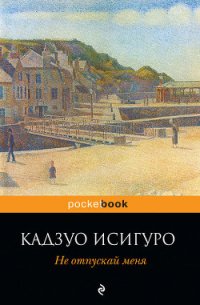Остаток дня / The Remains of the Day - Исигуро Кадзуо (хороший книги онлайн бесплатно .TXT) 📗

Жалоба
Напишите нам, и мы в срочном порядке примем меры.
Остаток дня / The Remains of the Day - Исигуро Кадзуо (хороший книги онлайн бесплатно .TXT) 📗 краткое содержание
Кадзуо Исигуро – урожденный японец, выпускник литературного курса Малькольма Брэдбери, написавший самый английский роман конца XX века! Лауреат Нобелевской премии 2017 года.
«Остаток дня» – дневник дворецкого, жизнь с точки зрения Бэрримора. В основе его стилистики лежит сдержанность, выявляющая себя в самой механике речи. Герой не считает возможным проявлять свои чувства, и на лингвистическом уровне эта своеобразная аскеза приводит к замечательным результатам – перед нами этакая оборотная сторона Достоевского с его неуправляемым потоком эмоций.
В 1989 году за «Остаток дня» Исигуро единогласно получил Букера (и это было, пожалуй, единственное решение Букеровского комитета за всю историю премии, ни у кого не вызвавшее протеста). Одноименная экранизация Джеймса Айвори с Энтони Хопкинсом в главной роли пользовалась большим успехом.
А Борис Акунин написал своего рода римейк «Остатка дня» – роман «Коронация».
В формате a4-pdf сохранен издательский макет книги.
Остаток дня / The Remains of the Day читать онлайн бесплатно
Kazuo Ishiguro / Кадзуо Исигуро
The remains of the day / Остаток дня
Copyright © 1989 by Kazuo Ishiguro
© Скороденко В., перевод на русский язык, 2020
© Издание на русском языке, оформление. ООО «Издательство «Эксмо», 2020
Kazuo Ishiguro
The remains of the day
In memory of Mrs Lenore Marshall
Prologue july 1956
It seems increasingly likely that I really will undertake the expedition that has been preoccupying my imagination now for some days. An expedition, I should say, which I will undertake alone, in the comfort of Mr Farraday’s Ford; an expedition which, as I foresee it, will take me through much of the finest countryside of England to the West Country, and may keep me away from Darlington Hall for as much as five or six days. The idea of such a journey came about, I should point out, from a most kind suggestion put to me by Mr Farraday himself one afternoon almost a fortnight ago, when I had been dusting the portraits in the library In fact, as I recall, I was up on the step-ladder dusting the portrait of Viscount Wetherby when my employer had entered carrying a few volumes which he presumably wished returned to the shelves. On seeing my person, he took the opportunity toinform me that he had just that moment finalized plans to return to the United States for a period of five weeks between August and September. Having made this announcement, my employer put his volumes down on a table, seated himself on the chaise-longue, and stretched out his legs. It was then, gazing up at me, that he said:
‘You realize, Stevens, I don’t expect you to be locked up here in this house all the time I’m away. Why don’t you take the car and drive off somewhere for a few days? You look like you could make good use of a break.’
Coming out of the blue as it did, I did not quite know how to reply to such a suggestion. I recall thanking him for his consideration, but quite probably I said nothing very definite, for my employer went on:
‘I’m serious, Stevens. I really think you should take a break. I’ll foot the bill for the gas. You fellows, you’re always locked up in these big houses helping out, how do you ever get to see around this beautiful country of yours?’
This was not the first time my employer had raised such a question; indeed, it seems to be something which genuinely troubles him. On this occasion, in fact, a reply of sorts did occur to me as I stood up there on the ladder; a reply to the effect that those of our profession, although we did not see a great deal of the country in the sense of touring the countryside and visiting picturesque sites, did actually ‘see’ more of England than most, placed as we were in houses where the greatest ladies and gentlemen of the land gathered. Of course, I could not have expressed this view to Mr Farraday without embarking upon what might have seemed a presumptuous speech. I thus contented myself by saying simply:
‘It has been my privilege to see the best of England over the years, sir, within these very walls.’
Mr Farraday did not seem to understand this statement, for he merely went on:
‘I mean it, Stevens. It’s wrong that a man can’t get to see around his own country. Take my advice, get out of the house for a few days.’
As you might expect, I did not take Mr Farraday’s suggestion at all seriously that afternoon, regarding it as just another instance of an American gentleman’s unfamiliarity with what was and what was not commonly done in England. The fact that my attitude to this same suggestion underwent a change over the following days – indeed, that the notion of a trip to the West Country took an ever-increasing hold on my thoughts – is no doubt substantially attributable to – and why should I hide it? – the arrival of Miss Kenton’s letter, her first in almost seven years if one discounts the Christmas cards. But let me make it immediately clear what I mean by this; what I mean to say is that Miss Kenton’s letter set off a certain chain of ideas to do with professional matters here at Darlington Hall, and I would underline that it was a preoccupation with these very same professional matters that led me to consider anew my employer’s kindly meant suggestion. But let me explain further.
The fact is, over the past few months, I have been responsible for a series of small errors in the carrying out of my duties. I should say that these errors have all been without exception quite trivial in themselves. Nevertheless, I think you will understand that to one not accustomed to committing such errors, this development was rather disturbing, and I did in fact begin to entertain all sorts of alarmist theories as to their cause. As so often occurs in these situations, I had become blind to the obvious – that is, until my pondering over the implications of Miss Kenton’s letter finally opened my eyes to the simple truth: that these small errors of recent months have derived from nothing more sinister than a faulty staff plan.
It is, of course, the responsibility of every butler to devote his utmost care in the devising of a staff plan. Who knows how many quarrels, false accusations, unnecessary dismissals, how many promising careers cut short can be attributed to a butler’s slovenliness at the stage of drawing up the staff plan? Indeed, I can say I am in agreement with those who say that the ability to draw up a good staff plan is the cornerstone of any decent butler’s skills. I have myself devised many staff plans over the years, and I do not believe I am being unduly boastful if I say that very few ever needed amendment. And if in the present case the staff plan is at fault, blame can be laid at no one’s door but my own. At the same time, it is only fair to point out that my task in this instance had been of an unusually difficult order.
What had occurred was this. Once the transactions were over – transactions which had taken this house out of the hands of the Darlington family after two centuries – Mr Farraday let it be known that he would not be taking up immediate residence here, but would spend a further four months concluding matters in the United States. In the meantime, however, he was most keen that the staff of his predecessor – a staff of which he had heard high praise – be retained at Darlington Hall. This ‘staff’ he referred to was, of course, nothing more than the skeleton team of six kept on by Lord Darlington’s relatives to administer to the house up to and throughout the transactions; and I regret to report that once the purchase had been completed, there was little I could do for Mr Farraday to prevent all but Mrs Clements leaving for other employment. When I wrote to my new employer conveying my regrets at the situation, I received by reply from America instructions to recruit a new staff ‘worthy of a grand old English house’. I immediately set about trying to fulfil Mr Farraday’s wishes, but as you know, finding recruits of a satisfactory standard is no easy task nowadays, and although I was pleased to hire Rosemary and Agnes on Mrs Clements’s recommendation, I had got no further by the time I came to have my first business meeting with Mr Farraday during the short preliminary visit he made to our shores in the spring of last year. It was on that occasion – in the strangely bare study of Darlington Hall – that Mr Farraday shook my hand for the first time, but by then we were hardly strangers to each other; quite aside from the matter of the staff, my new employer in several other instances had had occasion to call upon such qualities as it may be my good fortune to possess and found them to be, I would venture, dependable.




